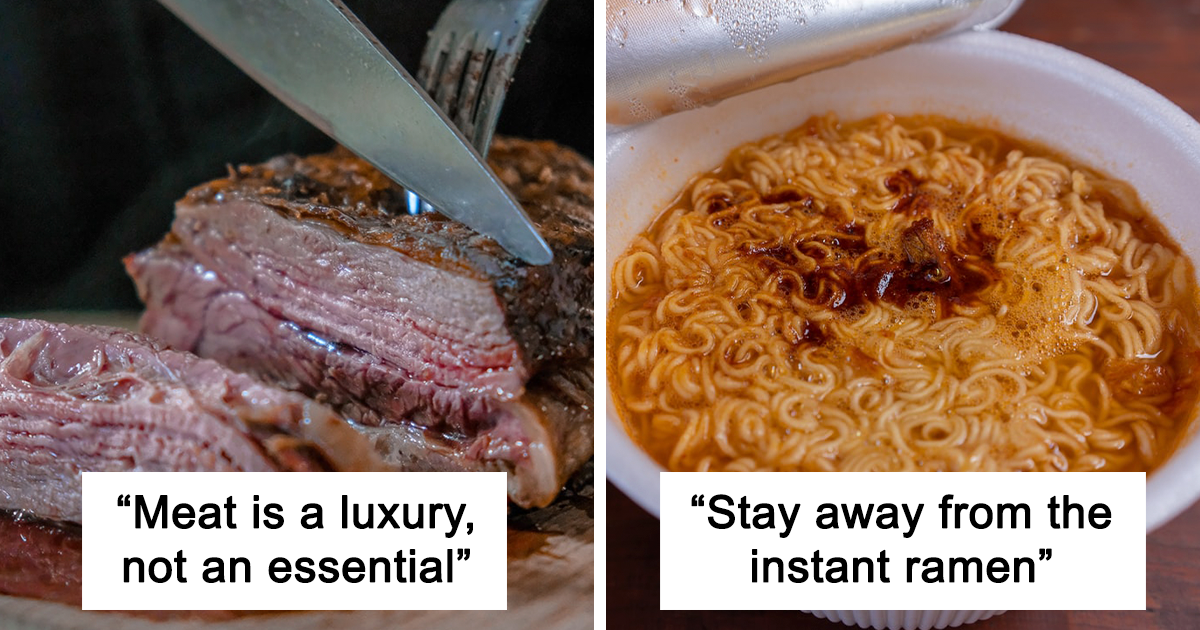Pro Chef Gives 21 Grocery Shopping Tips And Tricks
When it comes to grocery shopping, many of us feel like eating healthy is expensive. The high prices of bio protein bars and cleansing smoothies have led to the misconception that legumes and other whole foods are luxury items. However, one pro chef who goes by the Reddit handle u/Aichliss has done everyone a public service and listed all the ways to hack the grocery store.
Tip 1: Buy Frozen Fruit and Veg
Technology for frozen produce has improved dramatically in the last few decades. It's time to capitalize on this improvement. Buying frozen fruit and veg can be just as nutritious as fresh, especially when it comes to berries and peas. Look for products with minimal added ingredients and no preservatives.
Tip 2: Meat Is A Luxury, Not An Essential
In modern western culture, eating meat every day is seen as normal. However, this notion should be abandoned if we're trying to live more affordably. Meat is grossly overrepresented in most diets, and it's often linked to higher prices. Instead, opt for more vegetables and grains.
Tip 3: Learn The Nutrition Facts
Before making any purchasing decisions, learn the nutrition facts of the products you're considering. This will help you make informed choices about what you buy. Google and online databases are your friends when it comes to finding reliable information.
Tip 4: Find The Under-Appreciated And Over-Supplied Produce
There's always a bin of some forgotten veggie that no one eats for some reason. Rutabagas, turnips, apples, and corn are often overlooked due to a good harvest or lack of consumer interest. Capitalize on these opportunities by buying in bulk.
Tip 5: Buy Seasonally
Buying seasonally can make all the difference when it comes to affordable groceries. Look for sales and stock up on non-perishable items like grains, beans, and canned goods. This will help you save money and eat well throughout the year.
Tip 6: Learn How To Break Down Your Proteins
A whole chicken isn't just eight portions of meat – it's also bones, carcass, fat, and skin for making stock or soup. Understanding how to break down your proteins can save you money and help you cook more efficiently.
Tip 7: Make Your Own Coffee
Making your own coffee at home can be a cost-effective alternative to buying it from cafes or restaurants. Invest in a good coffee maker and buy beans in bulk. You'll also have the flexibility to adjust the flavor to your liking.
Tip 8: Buy Cheese Wisely
If you're going to buy cheese, treat it like a luxury item. Opt for high-quality, artisanal cheeses that are worth the extra cost. Avoid cheap options like Kraft block cheese and instead support local cheesemakers.
Tip 9: Rice Is A Staple Crop
Rice is one of the most important crops in the world, keeping civilizations alive for centuries. It's a great source of carbohydrates and can be cooked in a variety of ways. Buy long-grain rice when it's on sale and store it properly to keep it fresh.
Tip 10: Know Your Fish
Buying cheap processed fish products can lead to harm to the environment and your health. Instead, buy fresh, whole fish and learn how to pick good ones. Research the company you're buying from and know who's doing the fishing to make informed choices.
Tip 11: Buy The Least Processed Cuts
When eating meat, opt for the least processed cuts possible. Whole chickens, meat on the bone, and ground meats are your best friends. Avoid pre-made frozen protein options and instead buy raw product to save money.
Tip 12: Avoid Processed Foods
Avoid chips, sugar cereals, premade salad dressings, sweet juice/pop, and processed foods like KD or TV dinners at all costs. They're bad for you, expensive relative to the cost of production, and can put a burden on your body.
